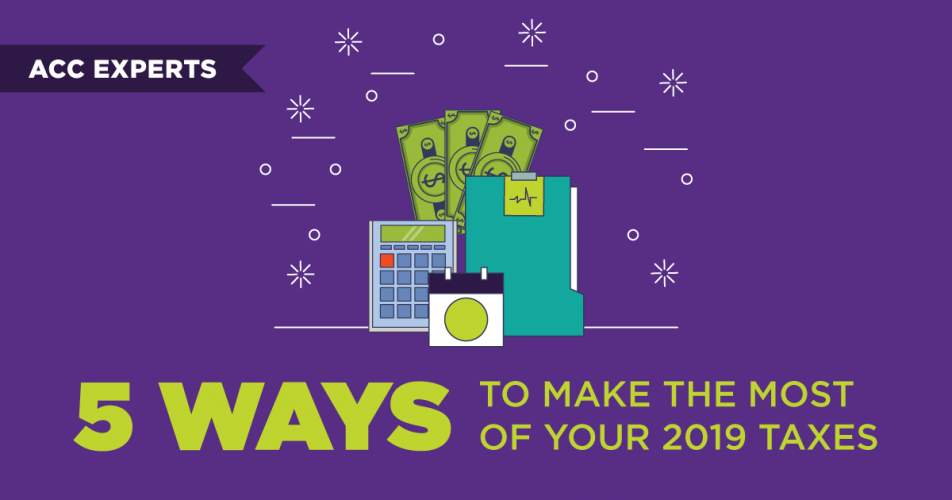Start Thinking About Filing Your 2019 Taxes: Tips from the ACC Experts
Fall is the perfect time to begin thinking about filing your 2019 taxes. Before the end of the year, take advantage of these tips to ensure that you’ll have hassle-free tax filing in April.
1. Check your federal income tax withholding. Take a moment to review your paystub and determine the amount of federal income taxes that have been withheld from your paycheck. In order to avoid underpayment penalties on your 2019 tax return, you need to either pay in 90% of your estimated 2019 tax liability or 100% of your previous year 2018 tax liability (110% for individuals with AGI greater than $150,000). If you’re self-employed, you should check to make sure that your quarterly estimated tax payments are enough to avoid the underpayment penalty.
2. Consider bundling your itemized deductions. Prior to the tax reform, when the standard deduction was a mere $12,700; roughly 30 percent of United States taxpayers claimed itemized deductions (taxpolicycenter.org). Beginning in 2018, the standard deduction was nearly doubled reducing the itemizers to less than 10 percent of US taxpayers. The 2019 standard deduction is $24,400 for married filing joint taxpayers and $12,200 for single. You may still be able to leverage those tax-deductible items (such as medical expenses, charitable contributions, and mortgage payments) every other year to save some serious cash. Many individuals may benefit from bundling itemized deductions every other tax year. This basic strategy consists of shifting itemized deductions into one year so that the total exceeds the standard deduction.
3. Max out your retirement plan. The IRS increased the amount of retirement contribution for employees who participate in 401(k), 403(b), and 457 plans to $19,000. In addition, the annual contribution to an IRA is $6,000 with an additional catch-up contribution of $1,000 for individuals aged 50 and over. You have until December 31, 2019 to contribute to a 401(k), 403(b), and 457 plan and until April 15, 2020 to contribute to an IRA.
4. Identify any 1099-MISC needed. If you are self-employed and pay at least $600 in rent and/or service to someone who is not your employee, you are required to file a Form 1099-MISC for each person. Form 1099-MISC is due on or before January 31, 2020.
5. Begin to prepare your paperwork. Now is the time to begin collecting all of the paperwork you’ll need to file your 2019 taxes. This might include charitable contribution receipts, medical expense receipts, and tuition and fees paid. Create a folder where you can begin filing copies of tax documents (such as W2s and 1099s) that you will receive in early January.
This article was written by Profs. Tracie Miller-Nobles, Jay Thibodeaux, and Kristy McDermott who teach taxation courses through the accounting department at Austin Community College. To find out more about the accounting department and its tax courses, visit https://www.austincc.edu/accounting.
